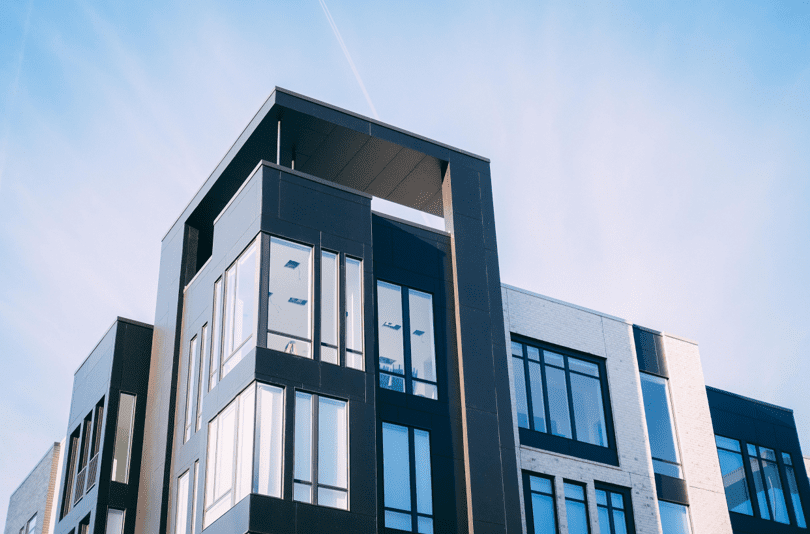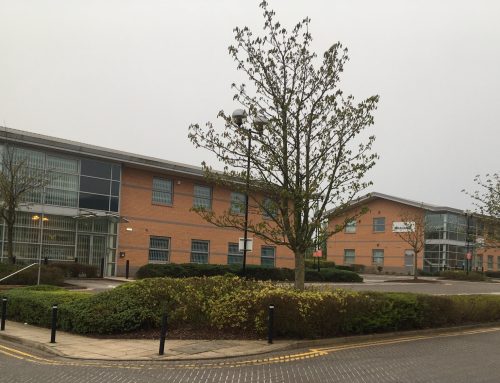You may be familiar with arranging buildings insurance for a house, but knowing what and if you need building insurance cover for a block of flats can be more complicated.
There are currently around 35 million home insurance policies in the UK, (which covers buildings and contents insurance), but many leasehold flat owners, property owners or resident management companies can be unsure of what is actually covered in flats building insurance.
Thankfully, setting up this kind of insurance is not too difficult. It is your duty to obtain insurance for your apartment block as the freeholder or an authorised agent of a property management firm.
These additional risks brought on by numerous leasehold properties in one building are considered by a block of flats insurance policy, a type of landlord insurance.
In this guide we’ll explain what’s included in a block of flats insurance cover.
What is block of flats insurance?
Buildings insurance is typically the focus of insurance for apartment buildings. This serves as protection for the property’s actual building. The leases for your apartments most likely stipulate that you must carry this minimal amount of buildings insurance and then seek reimbursement via a service fee.
Particularly, in order to finance on any of the units, mortgage lenders for individual leaseholders will demand buildings insurance. However, flats buildings insurance is far more complex than a typical home insurance policy. Avoid the temptation to get normal home insurance, even if the building is a converted house. Your insurer must first be informed of the occupancy of the apartments.
Any vacant apartments typically carry a higher risk of pricey claims since risks like water leakage may go undetected while significant harm is being done. Burglary risk is also increased. Then there are different tenant kinds to take into account; for instance, students are frequently viewed as higher insurance risk.
But since landlord insurance is specifically made for these kinds of circumstances, you don’t need to worry about these.
What does buildings insurance cover for a block of flats?
Covered:
If your building is damaged in a fire, flood, or storm, your buildings insurance will pay for the repairs. It includes the flats’ physical construction, such as the walls and flooring, as well as any enduring fixtures and furnishings, such as fitted kitchens and bathrooms.
Water leaks and subsidence damage may also be covered by building insurance. And perhaps most importantly, if the worst occurs, it might fully cover the cost of reconstructing the building, providing you with some confidence that your property is protected.
Not covered:
Checking your buildings insurance policy’s exclusions, or things that aren’t covered, is a good idea. Wear and tear, damage that develops gradually over time, improper or shoddy craftsmanship, and storm damage to fencing, hedges, and gates are often not covered.
Additionally, anything that isn’t a permanent fixture or fitting inside your flat won’t be covered by buildings insurance, including your goods. Home contents insurance is required for that.
Things to consider for your block insurance policy
Every block of flats is different, therefore there are a few things your insurer will ask you in order to give you the right flats insurance cost and cover:
Rebuild cost
The cost to reconstruct your apartment building based on manpower and material costs is known as the rebuild cost. It should be noted that this is not the same as the property’s market value or common but frequently incorrect methods of calculating rebuild value based on taking the market value and deducting a percentage.
You could have a building survey conducted in order to get a precise estimate of your rebuilding costs.
Occupancy
The occupancy of the multiple flats may raise concerns for your insurer. Students, for example, are seen to present a larger claim risk than other categories of tenants.
Properties that are rented out carry a larger risk than those that are owned and occupied. Nevertheless, any tenant will probably pose less of a threat than an empty flat.
Claims history
It’s crucial to tell your insurer if you’ve made any recent house insurance claims when prompted to do so. They frequently require the date of the claim, the total amount, and information regarding what went wrong.
If you are the freeholder, this is very straightforward with block insurance. However, if you are speaking for co-freeholders, you might need to ask them if they have any prior claims.
Joint freeholders
You just need to provide your personal information as the policyholder if you are the lone freeholder. If the freehold is shared, a residents management company you are licenced to operate for can speed up the insurance application procedure.
However, if the freehold is shared and you don’t have a company, you’ll probably need their information as well, including their date of birth and history of claims.
Looking for expert assistance with your block apartment insurance claims?
Buildings insurance isn’t a legal requirement for your block of flats, but most mortgage providers will want you to have it in place before they lend you any money, and of course it could be a lifeline should the worst happen to your building.
As a block property manager, we can administer insurance policies for buildings as we work with a number of reputable insurance brokers.
Our other block management services include repairs and maintenance, building surveying services, site visits, and more.
For more information about our services, or to get a quote, contact us today.
What does buildings insurance cover in a block of flats FAQs
Does building insurance cover leaks in flats?
Leakage from a water tank, pipe, central heating system, or appliance is typically covered by standard buildings insurance, which protects the structure of your flats, and contents insurance, which protects what you have inside.
What is a block of flats policy?
Those who own and lease all the flats in an apartment building that can house either residential or commercial tenants are eligible for block of flats insurance. This insurance can protect against dangers relating to the building and the renters.
Does building insurance cover windows in flats?
If the unexpected occurs, buildings insurance is intended to pay for the expense of repairing your home’s structural components. It includes permanent components like fitted kitchens and bathrooms as well as things like the roof, walls, and windows.







